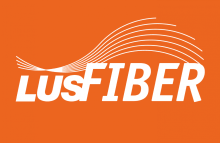LUS Fiber Brings Popular Broadband Service Into Church Point, Louisiana
Lafayette Utilities System’s LUS Fiber subsidiary is taking the show on the road. Louisiana’s only publicly-owned broadband provider says it’s expanding access into nearby Church Point, bringing affordable fiber access to the town of nearly 4,200 residents.
LUS Fiber was awarded a $21 million grant to expand fiber outside of Lafayette as part of the U.S. Department of Commerce’s National Telecommunications and Information Administration’s (NTIA) Broadband Infrastructure Program (BIP).
“This expansion not only improves the lives of our residents but also enhances opportunities for businesses, education, and healthcare in our town,” Church Point Mayor Ryan ‘Spanky’ Meche said in a prepared statement. “LUS Fiber’s work here is a tremendous step forward for our community.”

The expansion is part of a series of new broadband deployments that should bring more than one million feet of new fiber options to numerous new Louisiana communities, including Ville Platte, Venice, Mamou, and Basile. Church Point residents are currently able to start scheduling installations via the LUS Fiber website.
The deployments technically began earlier this year, starting with Ville Platte, which data indicates, currently has the fifth-slowest average broadband speeds in the continental U.S.
Like most of America, much of Louisiana is dominated by a handful of regional telecom monopolies that see little competitive incentive to compete on speeds, coverage, prices, or quality customer service.




